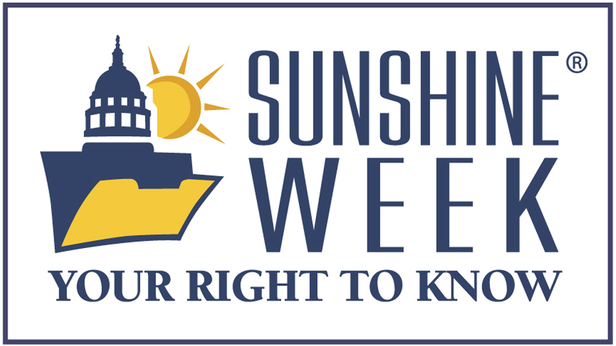
Governor issues executive order establishing public tracking system for open records requests, new timeline for agency responses, more training for public employees
MacIver News Service | March 14, 2016
The executive order charges each state agency to fulfill “any small and straightforward request” within 10 business days “whenever it is practicable to do so.” Agencies must acknowledge receipt of any request within one business day, and must respond within five business days when a requester asks for an update on the status of a request. Current law does not provide a strict time limit during which government agencies must respond to requests. In practice, response times can differ greatly depending on the unit of government, often lasting weeks or months for a simple request.

Under the executive order, agencies will not charge requesters for any records request that costs under $50 to retrieve, nor will they charge per-page for records that also exist in an electronic format. Currently, agencies and local units of government are only required to notify requesters if the cost of retrieving a request exceeds $50.
All agency employees will be required to participate in regular public records training in an effort to increase employee knowledge of public records responsibilities, and to bring down the cost of retrieving records.
“Today, we are thrilled to highlight some of the great initiatives we have put in place to ensure public access to government across all state agencies,” Gov. Walker said. “We continue to look for ways to better serve the people of Wisconsin. By implementing these new initiatives, our citizens will have access to government services and processes far beyond what any previous administration has offered.”
Westerberg of WI Freedom of Information Council "We view this as good news" on Walker open records announcement https://t.co/rIlap2GXgi
— MacIver Institute (@MacIverWisc) March 12, 2016
Since taking office, Gov. Walker’s administration has received 841 public records requests and has released over 6,090,000 pages of records.
Groups across the country – including the MacIver Institute – are celebrating Sunshine Week, which runs from March 13-18 this year. The celebration began in 2002, when the Florida Society of Newspaper Editors launched a response to legislative attempts to increase exemptions to the state’s public records laws. Since then, Sunshine Week has spread across the country as an effort to inform the public on their rights to information and the importance of open government.
“Too often, too many in government service would prefer to keep the public at arm’s length as they go about the people’s business,” Brett Healy, president of the John K. MacIver Institute for Public Policy, said. “Everyone in government service, at every level of government in this country, needs to realize just how important and fundamental transparency is to our democracy and our way of life in America.”
The MacIver Institute has joined up with the Wisconsin Freedom of Information Council, the Wisconsin Institute for Law and Liberty (WILL), the Madison chapter of the Society of Professional Journalists, the Center for Media and Democracy, the Wisconsin Center for Investigative Journalism, and Wisconsin Democracy Campaign to host an “Open Government Traveling Show” from March 15-17. The show will make stops in eight cities across the state in an effort to inform the public on the importance of the state’s open records law, how to use it, and examples of its use by journalists and other open government advocates. All stops will be free and open to the public.
The Wisconsin Freedom of Information Council awarded the MacIver Institute its Citizen Openness Award for 2012-2013 after MacIver refused to back down from its open records requests of Sen. Jon Erpenbach (D-Middleton). The MacIver Institute filed a lawsuit against Erpenbach after he refused to turn over unredacted emails of public employees sent to his office during the Act 10 debate. After winning the case and gaining access to the emails, the MacIver Institute discovered that two-thirds of the emails sent from public employees during the Act 10 fight were done using taxpayer resources during normal business hours.
Just last week, WILL announced a win in an open records-related case. In New Richmond News v. City of New Richmond, Wisconsin Watchdog made open records requests for incident reports and citations related to an incident at the Jefferson County Fair. When the Jefferson County Sheriff’s Department released records that had basic information redacted from them, WILL challenged those redactions in court, demanding unredacted copies of the records. After the court ruled 3-3, the Sheriff’s Department agreed to settle the case and release unredacted reports. The case was another reminder that all levels of government – not just those at the top – are subject to the state’s open records law.
Wisconsin Attorney General Brad Schimel also heralded the start of Sunshine Week, calling it “an opportunity for us all to celebrate Wisconsin’s proud history of strong public records and open meetings laws.”
Attorney General Schimel goes on to write that his office opened the Wisconsin Department of Justice Office of Open Government last June, which has since led an internal review of practices and has overhauled the process to reduce the response time while the number of requests continues to increase.
“I am proud of the steps the Wisconsin Department of Justice has taken over the last year to make government more transparent and I will continue to fulfill my promise to let the sun shine on state government,” Attorney General Schimel said.
Last summer, the Joint Committee on Finance and Gov. Walker’s administration made efforts to exempt most public employee communications from the state’s public records law. The MacIver Institute and WILL were among groups who immediately condemned the efforts in a joint statement.
As dedicated supporters of transparency and openness in government, the MacIver Institute will continue to provide coverage throughout Sunshine Week. Stay tuned for updates and follow along on twitter with #SunshineWeek.